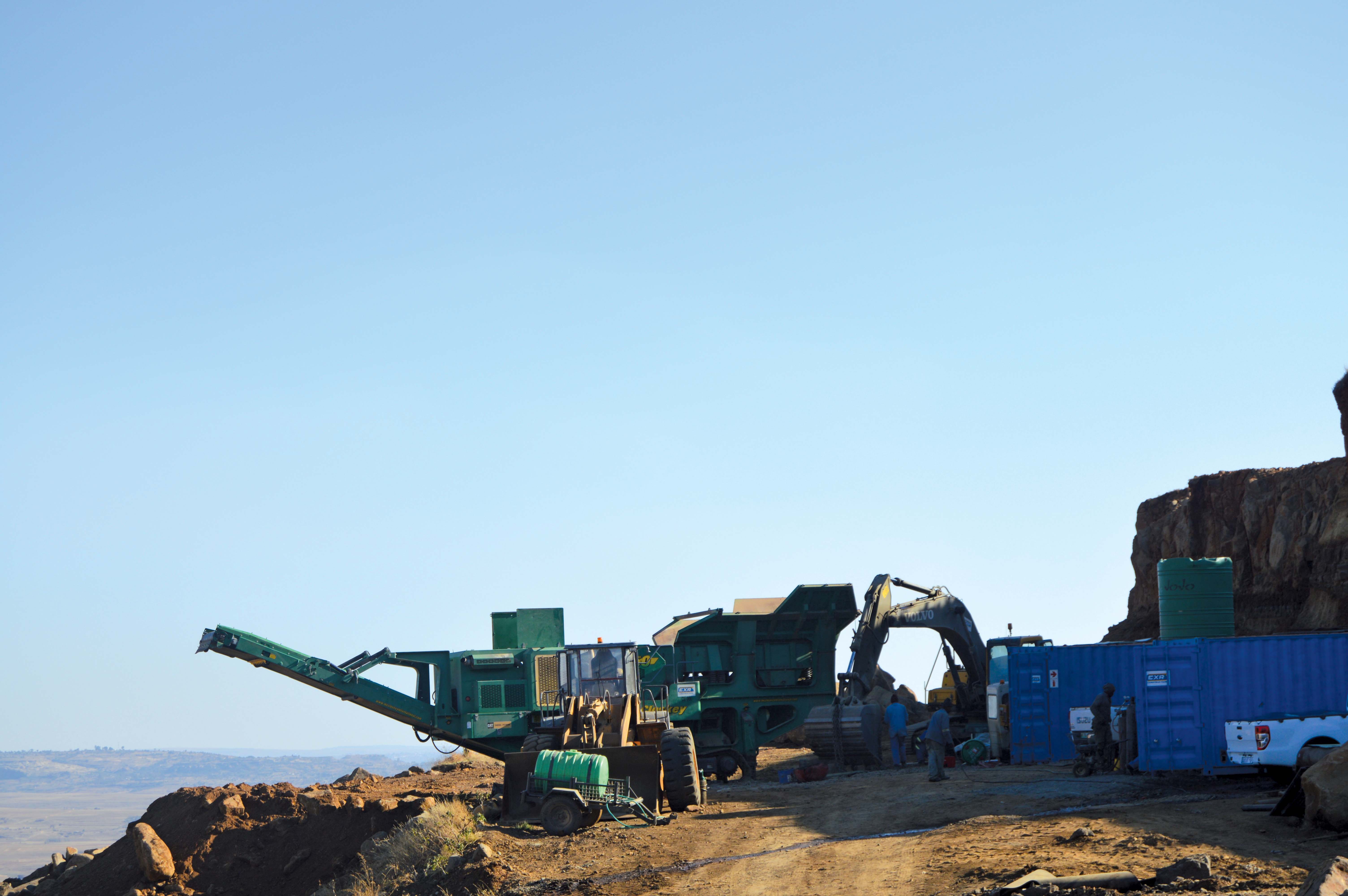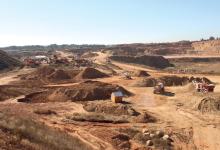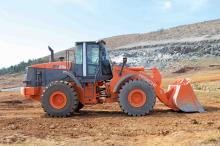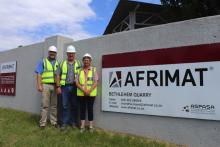
A road construction contractor working in Lesotho is turning obstacles into stepping stones by challenging the mountainous terrain in the country to its aggregate advantage, writes Munesu Shoko.
Lesotho may be a very small country encircled by highly-developed South Africa but construction of its infrastructure, from roads through to airports, is taking centre stage as it battles to address its infrastructure shortcomings. Amid very tight margins, EXR Construction, a South African road construction contractor working in Lesotho, keeps as many functions in-house as possible, and one of the key decisions paying dividends was to establish a dedicated crushing division that operates as a commercial crushing contractor for its own aggregate-intensive jobs, as well as catering for external demand.
Road construction opportunities may abound in Lesotho, but delivering these projects is quite another as contractors often contend with limited existing road infrastructure characterised by steep descents and ascents in the mountainous country to move their large fleets of plant to sites in the “middle of nowhere”. But, EXR Construction is taking these jobs as they come, and the contractor has paid its school fees to get the better of these obstacles and tough operating conditions. For example, one of the key challenges at its Mejametalana Airport runway project site in Maseru is getting aggregate to site.
Scope of works for the aggregate-intensive project entails vertical realignment of a 1370m-long, 30m-wide runway strip; bulk earthworks comprising 65,000m³ cut to spoil and 28,000m³ cut to fill; layer works consisting of a G7 selected layer, a C4 stabilised sub-base and a G2 base; surfacing with 45mm continuously graded asphalt with 13mm rolled-in chips; construction of subsoil and stormwater drainage; as well as construction of a 1,800m² apron slab. Unforeseen ground conditions turned out to be a major challenge as this called for an undercut for the full extent of the ZAR67 million (around US$5.5 million) project before backfilling with a selected G7 layer. Originally the design envisaged that the contractor could cut and fill, but ended up spoiling as the quality of material did not meet the specifications. In this regard, the borrow pit supplying the much needed aggregate is only 35km away from the project site, and 25km of the distance is through bumper-to-bumper traffic, translating into severe delays on the project.
Having completed several projects in Lesotho already, the contractor has learnt ample lessons over time. A turnkey approach to its business in Lesotho was the immediate answer to these operational woes. The company has established several divisions that primarily serve its core construction contracting business, but also cater for external demand to generate the much-needed extra buck. These include aggregate crushing, asphalt and plant divisions.
On its road project in Mapoteng, some 60km from the Mejametalana Airport site, EXR is operating a quarry and a borrow pit to cater for this two-lot road project’s aggregate supply. The mining rights of the quarry belong to an individual who wasn’t mining the quarry. EXR negotiated to pay royalties to the quarry owner to crush as a commercial contractor supplying its own road projects in the vicinity and an external customer base. “To be competitively cost-efficient in Lesotho, you need to do almost everything in-house,” says Pienaar van Zyl, director at EXR Construction. The crushing component on the Mapoteng road project has served the contractor a whopping $1.32 million (ZAR17 million) of the $5.76 million (ZAR74 million) project.
At this stage, EXR is crushing sufficient G2 material for its Mapoteng road project, while spin-offs such as 19mm concrete stone and crusher dust are sold to an external customer base. The contractor is producing 1,800tonnes/day of G2, 320tonnes of 19mm concrete stone and 13mm chip and spray stone, as well as 450tonnes of crusher dust on a 12-hour shift.
Drilling and blasting is outsourced to contractor AA Drilling which blasts at least every second week. Blasts are usually big, producing between 18,000 and 20,000m³.
About 5km from the quarry, a borrow pit that produces sub-base material has been established. EXR has ripped through a mountain said to offer better G4 material. An
At the time of writing, 30km of the 36km Lot 1 of the Mapoteng road project had already taken 47000m³ of sub-base material produced at this borrow pit, while the remaining 6km called for another 8000m³, according to Landman Goosen, contracts manager at EXR Construction.
Operating a large fleet of equipment in Lesotho translates into bulk diesel storage for EXR. One of the key challenges of keeping this “precious commodity” in bulk is that diesel theft is tantamount to a full-time job for syndicates operating in Lesotho. “Diesel theft is a lucrative criminal activity here. It’s something we try to contain but diesel is like gold here, everyone needs it,” says Goosen.
However, having worked in the country for some time now, EXR has put up several measures to limit this scourge to a point where it’s not a cost factor anymore. All of its pieces of equipment are fitted with an anti-siphoning device fitted to the fuel tanks. But, these criminals are also said to be more innovative in their ways. They have gone to the extent of opening fuel injectors in the engine compartment and connecting a pipe to a 20litre container while the engine is running.
To match these “innovations”, EXR ascertained fuel usage of each piece of equipment, and only diesel enough for a particular shift is allocated according to the determined consumption. In case of any fuel siphoning, it is easily detectable. The company has also installed surveillance cameras on the storage tanks to monitor any movements on that area, while the diesel bowser is now heavily fenced and locks to the gates are changed after every three months.







